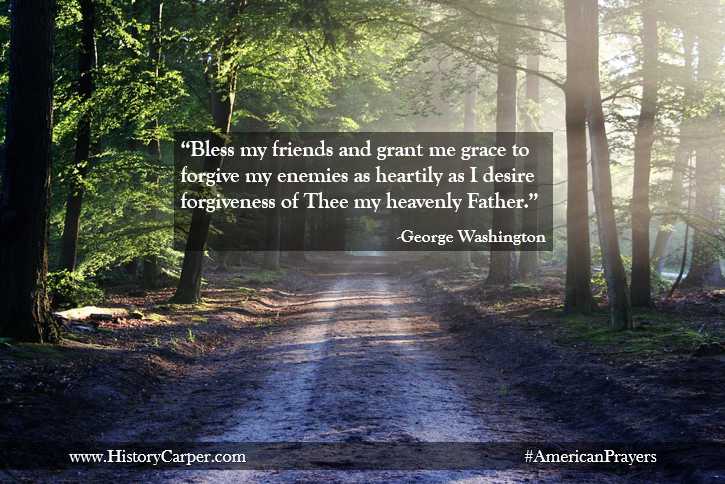Watch
Events
Articles
Market
More
Good morning! It is a beautiful day, and as I look out my window, I am again in awe at my Creator's joy in making things look so pretty. My hope is that in word and deed, my actions will represent His beauty in the world today. https://archive.aweber.com/awlist6425868/HnxDU




Thought for Today: Tuesday May 30:
Take your weakness to Adonai YHVH and receive His Peace. Accept yourself and your circumstances just as they are, remembering that YHVH is sovereign over everything. Do not wear yourself out with analysing and planning. Instead, let thankfulness and trust be your guides through this day; they will keep you close to YHVH. As you live in the radiance of His Presence, His Peace shines upon you. You will cease to notice how weak or strong you feel, because you will be focusing on YHVH Elohiym. The best way to get through this day is step-by-step with Adonai Elohiym. Continue this intimate journey, trusting that the path you are following is headed for heaven.



BIBLE STUDY LESSON 10
SERIES Q --- THE SAVIOUR
THE FIRST MIRACLE
A MIRACLE AT CANA
From John 2:1-12
Not long after Adonai Yeshua returned to Galilee, His mother went to a wedding in the village of Cana. Adonai Yeshua and His disciples were also guests at the wedding. During the long wedding party, which probably lasted several days, the host discovered that all of the wine had been used. [Did You know that the wine is gone?] Mary asked Adonai Yeshua. [What are you trying to get Me to do?] Yeshua replied. [It isn’t the proper time to begin miracles.] But Mary talked to the servants. [Be sure to do what He tells you,] she said. In the home there were six big water pots used for Jewish purification ceremonies. They were large, holding about twenty to thirty gallons each. Adonai told the servants to fill these to the top with water. When they had finished, He told them what to do next. [Take some water from a jar and give it to the man in charge of the festivities,] Adonai said. The servants took the water, which Adonai Yeshua had now turned into wine, as they had been told to do. Of course, the man in charge did not know where the servants had found this wine. He was so excited that he talked to the bridegroom about it. [Most people use their best wine first,] he said. [Then when people are too full to care, they bring out the poorer quality. But you certainly surprised us by saving your best wine until the last.] Thus, Adonai began His miracles in Cana of Galilee, showing the power that YHVH had given Him. Because He showed His glory in this way His disciples believed that He was the Moshiach. When the wedding party was over, Adonai went with His mother and family and disciples to Capernaum. But they stayed in Capernaum no more than a few days.
CONCERN FOR YHVH’S HOUSE
From John 2:13-22
When the annual Passover time came, Adonai went to Jerusalem as usual. In the courtyard of the temple, He noticed the merchants selling cattle, sheep, and pigeons for the sacrifices. Adding to this confusion, there were also the moneychangers. Adonai made a whip by weaving some cords together. With it He drove these merchants from the temple, along with their animals. Then he upset the moneychangers’ tables, spilling the coins on the temple floor. Next, He went over to the merchants selling doves and ordered them out of the temple. [Take these out of here!] He demanded. [Stop making My Father’s house a marketplace.] When His disciples saw this, they remembered what the Scriptures had said, [I have a passionate concern for YHVH’s house.] [Who gave You the authority to do this?] the temple leaders demanded. [If YHVH did, then prove it with a miracle.] [I will give you a miracle later,] Adonai answered. [When you destroy this temple, I will bring it back again in three days.] [But it has taken forty-six years to build this temple,] they scoffed. [Do You think You can rebuild it in three days?] Of course, Adonai was talking about His Body, not the building they were in. After He arose from the dead, His disciples remembered what He had said here. Then they were certain that He had been talking about the temple of His body, so they believed the Scriptures as Adonai had quoted them.
A VISIT BY NIGHT
From John 2:23-3:21
While Adonai was in Jerusalem for the Passover, many saw His miracles and believed that He was the Moshiach. But Adonai knew how changeable these people could be, so He did not commit Himself to them. One night a Pharisee named Nicodemus went to see Adonai. He wanted to inquire about the things he had seen. [Your miracles show that YHVH has sent You to be our teacher,] Nicodemus told Him. Adonai knew what Nicodemus searched for and answered him this way, [If you want to enter into the Kingdom of YHVH, you must be born again.] [But how can I be born again?] Nicodemus asked. [Do you expect a grown man to go back into his mother and be born a second time?] [No,] said Adonai. [I want you to understand this. Unless a man is born spiritually, in addition to his physical birth, he cannot get into the Kingdom of YHVH, your physical birth comes about through human reproduction. But your second birth, the spiritual one, can only come through the Spirit of YHVH. Is it so surprising that you can be born a second time? When you hear the wind, you do not know where it comes from or where it goes. Must you know more about the movements of YHVH’s Spirit? We cannot know whose life He will touch next!] [But how can such things happen?] Nicodemus asked. [Aren’t you one of Israel’s teachers?] Adonai replied. [Then you should understand what I am saying. I want to assure you that these things are absolutely true because I have seen them, yet you find them hard to believe. [So far, I have told you only a few things that can happen to men here on earth. If you can’t believe that much, what would you do if I told you some of the dramatic happenings in heaven? There is no one on earth who has been in heaven except Me. That is because I am YHVH’s Son and My home is in heaven. [When Moses was in the wilderness, he lifted up a bronze snake on a pole to give new life to his dying people. In the same way, I will be lifted up on a cross to give new life to those dying in sin. Whoever believes in Me will never face unending death in hell, but will enjoy unending life in heaven. For YHVH so loved the world that He gave His only Son, that whoever believes in Him will not suffer everlasting death but will receive everlasting life. YHVH did not send His Son to condemn the world, but to save it from everlasting punishment. Whoever believes in YHVH’s Son will not be judged guilty for his sins. But whoever rejects YHVH’s Son willingly accepts a verdict of guilty and its full punishment, for he has refused the only One who can pardon him and set him free. This is the way that verdict reads:
‘The Light of YHVH has come into the world, but you have loved the world’s darkness more than YHVH’s Light because it hides your evil deeds. Sin has become a habit in your life, so you stay away from YHVH’s Light knowing that it will expose all your sins and make you open to punishment. But those who desire what is right and true come gladly to YHVH’s Light to make it perfectly clear that they live in peace with YHVH.’]
COMMENTARY
CANA
When Adonai lived in Galilee, Cana was a pleasant village located in that region. It was Nathanael’s home and also the place where Adonai turned water into wine at a wedding. Adonai returned to Cana another time, where he met a government official from Capernaum, and from a distance healed the man’s son. The exact location of Cana is not known today. There are three places which have been accepted as the site where this village once stood. Two are more accepted than the third. Kefr Kenna, located about three miles north of Nazareth, is on the main road and is shown most often to tourists as Cana. Churches have been built there to commemorate Adonai’ miracles at Cana. Khirbet Qana is farther north, about ten miles from Nazareth. It perches on the slope of a stony hillside west of the Sea of Galilee. The region is rich with oranges, olives, pomegranates, and grapes. It is known for certain that Cana was somewhere in this region, and it is also certain that Adonai walked there.



Bless my friends and grant me grace to forgive my enemies as heartily as I desire forgiveness of Thee, my heavenly Father. -George Washington
#americanprayers



